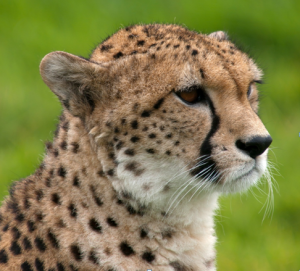|

Looking at the official CITES trade website, it appears that South African captive breeders have been very active in the international trade in cheetahs. Not content by only exporting tigers, white lions and selling canned lion hunts and lion bones, it seems cheetahs are also involved in their lucrative formula.
From 2000 to 2010, South Africa exported 762 live cheetahs. That is seven hundred and sixty two.
Where did all those cheetahs go? To all the usual suspects involved in wildlife trade… plus one more.
The numbers show that 115 cheetahs went to the well-known wildlife trafficking hub – the United Arab Emirates. The same number of 115 were sent to China. Then 23 went to Thailand, and last year 4 went to Vietnam. Oh, and 82 went to Japan?
Cheetahs are listed on CITES Appendix 1, the highest listing possible. Trade is therefore highly restricted, but captive bred animals fall into a lower category. Nevertheless, all cheetah exports are recorded by CITES. Namibia and Zimbabwe are allowed by CITES to export wild cheetah hunting trophies under a strict quota system. The European Union allows imports of such cheetah trophies – most go to Austria and Germany – but the United States has banned any such imports. Captive bred cheetah trophies from South Africa add up to 60 from 2000 – 2011, and interestingly 11 of those went to China.
Once again, South Africa is feeding very shady markets with large cat exports. Since these are all privately owned animals, it is all legal – but – the supply stimulates the market. We are convinced that many of those cheetahs sent to the United Arab Emirates, China, Thailand, and Vietnam are involved in some sort of Traditional Asian Medicine transactions, as that is where the ultimate profits accumulate. Cheetah bone wine?
At the end of the day, we are LionAid, and will focus our major effort to reverse the great decline in lions. It seems now that the legal and the lucrative trade of large cat species is closely interlinked and interwoven with illegal trade, so all of us involved in large cat conservation need to pay close attention and work together. The cynical captive large cat captive breeding trade in South Africa doubtless affects the survival of their wild relatives.
Picture credit: http://binged.it/OoscYt
|




